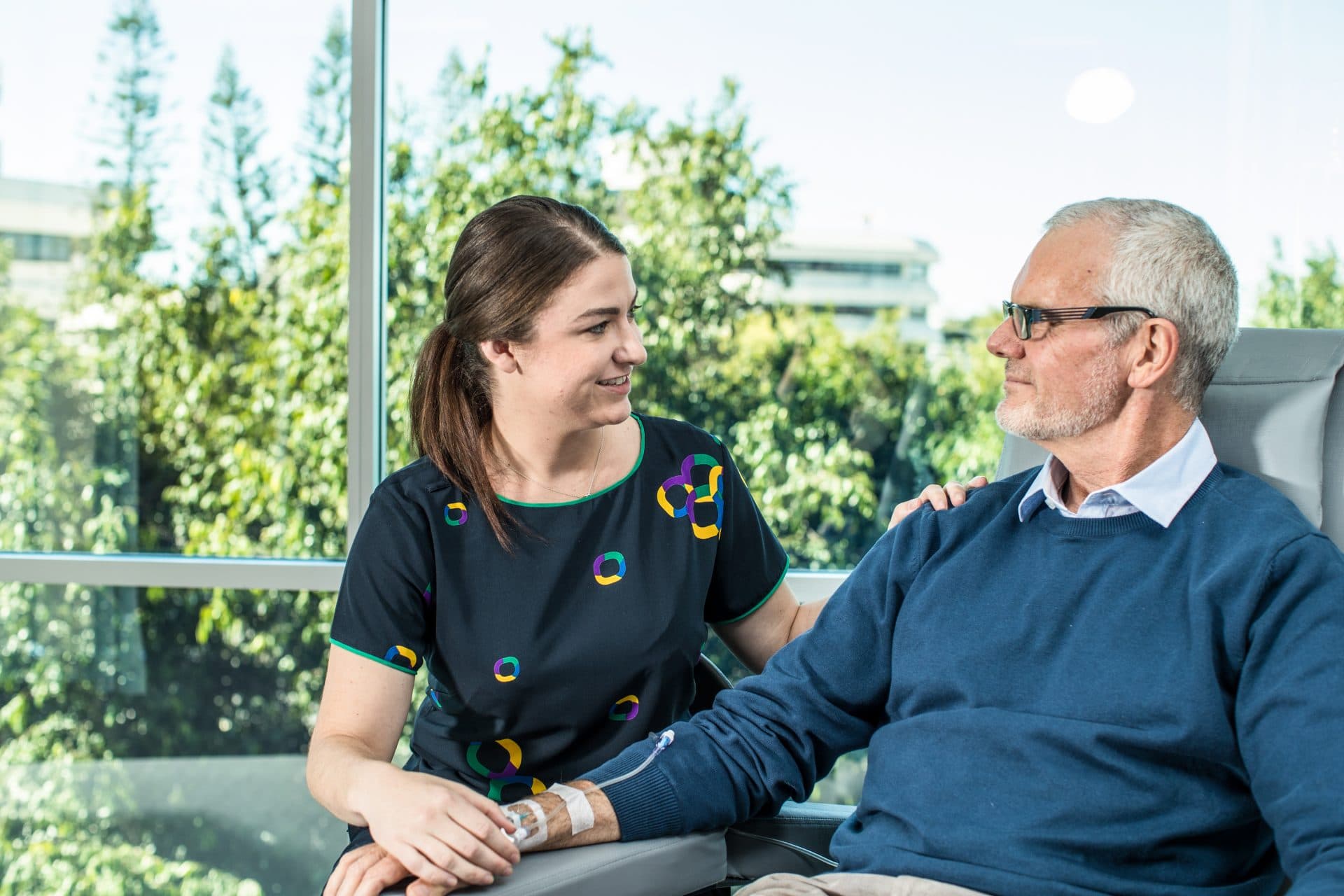

ANZadapt / ANZUP 2101
ANZadapt / ANZUP 2101: Phase II Randomised Controlled Trial of Patient-specific Adaptive vs. Continuous Abiraterone or eNZalutamide in mCRPC
Trial summary:
Hormone tablets, abiraterone (Zytiga®) and enzalutamide (Xtandi®) are approved to treat advanced prostate cancer. However, even if these drugs are helpful, their effectiveness usually diminishes over time. Small pilot studies have indicated that using hormone tablets sparingly, for just long enough to control the cancer, followed by a break in treatment and restarting them later, seems to improve how long hormone tablets can control the cancer. This study aims to find out if this pause/restart strategy is better than taking hormone tablets every day continuously. The study will include 168 people with metastatic castrate resistant prostate cancer in the Netherlands and Australia. Patients will be randomly 1:1 assigned between the control group and the experimental group. In the control group, patients will take the treatment with AA/ENZ every day until the prostate cancer doesn’t respond anymore to the treatment. In the experimental group, patients will start with daily AA/ENZ until the PSA has declined for >50%. The treatment will then be paused and monthly PSA measurements will be performed. The treatment will be re-initiated when the PSA has increased to the level of before starting treatment. The treatment will be continued daily until the PSA has again dropped for >50%. This pause/restart cycle will be repeated until the prostate cancer doesn’t respond anymore to the treatment.
Receptor status / problem studied:
Inclusion criteria
1) Willing and able to provide informed consent;
2) Aged 18 or older;
3) Histologically or cytologically confirmed adenocarcinoma of the prostate;
4) Ongoing androgen deprivation therapy with a GnRH analogue or bilateral orchiectomy (i.e. surgical or medical castration with testosterone at screening ≤1.7 nmol/L (<0.5 ng/L)); patients who have not had a bilateral orchiectomy, must have a plan to maintain effective GnRH-analogue therapy for the duration of the trial;
5) Presence of metastatic disease on WBBS and/or CT-scan;
6) Progressive disease at study entry defined as per PCWG3 as one or more of the following criteria that occurred while the patient was on ADT:
|— a) PSA progression defined by a minimum of 2 rising PSA levels with an interval of ≥1 week between each determination. Patients who received an anti-androgen must have progression after withdrawal (≥4 weeks since last flutamide or ≥6 weeks since last bicalutamide or nilutamide); OR
|— b) Radiographic PD on bone scintigraphy and/or CT-scan;
7) A PSA concentration of ≥10 ng/mL.
8) Eastern Cooperative Oncology Group (ECOG) performance status of 0-2;
9) Controlled symptoms (opioids for cancer related pain stable for >4 weeks, no need for urgent radiotherapy for symptomatic lesions);
10) Estimated life expectancy of ≥12 months;
11) Patient has archival prostate cancer tissue available and which he consents to share or is willing to undergo a new tumour biopsy;
12) Adequate organ function: absolute neutrophil count > 1,500/μL (> 1.5*109/L); platelet count > 100,000/μL (> 100*109/L), haemoglobin > 90 g/L; total bilirubin < 1.5 times ULN, alanine aminotransferase (ALT) or aspartate aminotransferase (AST) < 3 times ULN; creatinine < 175 μmol/L; albumin > 30 g/L;
13) Any other therapies for CRPC (excluding denosumab and bisphosphonates) have to be discontinued 3 weeks prior to study randomisation;
14) Able to swallow the study drug and comply with study requirements.
Exclusion criteria
1) Life-threatening or serious medical or psychiatric illness that could, in investigator’s opinion, potentially interfere with participation in this study;
2) Diagnosis or treatment for another systemic malignancy within 2 years before the first dose of study drugs. Potential participants with non-melanoma skin cancer, non-muscle invasive bladder cancer, or carcinoma in situ of any type are allowed if they have undergone complete resection;
3) Known or suspected brain metastasis or leptomeningeal disease;
4) Small-cell or neuroendocrine differentiation of prostate cancer;
5) Radiation therapy for treatment of the primary tumour within 3 weeks of screening visit;
6) Radiation or radionuclide therapy for treatment of metastasis within 3 weeks of screening visit, excluding radiation to reduce pain symptoms;
7) History of uncontrolled seizures (if patient and investigator wish to choose treatment with enzalutamide);
8) Unstable symptomatic ischemic heart disease, ongoing arrhythmias or New York Heart Association (NYHA) Class III or IV heart failure;
9) Known HIV infection, active chronic hepatitis B or C;
10) Known gastrointestinal (GI) disease that could interfere with GI absorption/tolerance of study drugs;
11) Prior treatments with CYP17 inhibitors (e.g. ketoconazole) or novel androgen receptor inhibitors (e.g. abiraterone, apalutamide, darolutamide or enzalutamide). Bicalutamide and nilutamide should be stopped >6 weeks before screening visit. Prior treatment with docetaxel in the mHSPC setting is allowed.
12) Any condition or reason that, in the opinion of the Investigator, interferes with the ability of the patient to participate in the trial, which places the patient at undue risk, or complicates the interpretation of safety data.
Trial Title
ANZadapt / ANZUP 2101
Diagnosis
Prostate cancer
Type of trial
Collaborative
Type of treatement
Medical Oncology
Phase
II